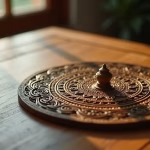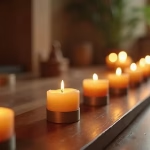Why Do People Follow Rituals and Are They Beneficial?

Rituals have been part of human life for centuries, playing crucial roles in shaping cultures and societies around the world.
Why Do People Follow Rituals and Are They Beneficial? From daily habits to grand ceremonies, rituals are more than just routines; they offer structure, connection, and often comfort. This post explores the appeal of rituals, their significance, and the various benefits they provide.
Understanding Rituals
At their core, rituals are structured actions repeated consistently. They can be personal, like enjoying a cup of coffee each morning, or communal, like annual festivals. These practices often carry deep meanings, guiding participants through intentional and meaningful actions.
- Rituals have been part of human life for centuries, playing crucial roles in shaping cultures and societies around the world.
- Understanding Rituals
- The Psychology Behind Rituals
- Types of Rituals
- The Benefits of Rituals
- Are Rituals Normal?
- Common Misconceptions About Rituals
- How to Incorporate Rituals into Daily Life
- Final Thoughts
Rituals are prevalent across diverse cultures yet possess common traits: they are generally formalized, repetitive, and hold symbolic significance. For example, studies indicate that nearly 70% of people engage in some form of ritual, whether religious, cultural, or personal. In a fast-paced world, many turn to rituals as a source of stability during uncertain times.
The Psychology Behind Rituals
Research in psychology highlights that rituals can enhance mental well-being. For instance, performing a ritual before a stressful event, like a job interview, can alleviate anxiety. In a study, 61% of participants reported feeling more in control and calm when they practised their rituals beforehand.
Rituals can also function as coping mechanisms during challenging times. Consider the common practice of lighting a candle in memory of a loved one. This act can create a comforting connection and provide individuals with Emotional support during moments of grief.
Types of Rituals
Rituals can be categorized in various ways based on their intent and context:
1. Religious Rituals
These rituals include practices like prayer, communion, and sacramental ceremonies. They foster community and reinforce shared beliefs, often providing communal support during significant life events. For example, nearly 80% of individuals who participate in religious rituals report feeling a stronger bond with their faith and community.
2. Cultural Rituals
Cultural rituals celebrate identity and heritage, encompassing events like festivals, traditional dances, and rites of passage. These actions help preserve history while instilling pride in communities. For instance, countries with strong cultural rituals often report higher levels of national pride.
3. Personal Rituals
Personal rituals are individual practices that ground people in their daily lives. This might include a meditation routine or an evening reflection to unwind. Studies show that participants who engage in personal rituals have a 30% higher level of reported happiness compared to those who do not.
4. Transitional Rituals
These rituals mark significant life changes—weddings, graduations, or funerals. By helping individuals and communities navigate emotions surrounding these transitions, they provide closure and celebration. For example, 90% of graduates state that the graduation ceremony helped solidify their sense of accomplishment.
The Benefits of Rituals
The advantages of rituals extend well beyond tradition. Research reveals that they can positively impact various life aspects:
1. Community and Connection
Rituals strengthen social bonds by connecting people who share similar values and experiences. This connection cultivates a sense of belonging, which is essential for emotional support. Individuals involved in community rituals are 40% more likely to report feeling understood and accepted.
2. Emotional Regulation
Participating in rituals enhances emotional regulation. Engaging in structured activities can help people manage their emotions during stressful times. A survey revealed that 75% of responders found comfort in participating in rituals to cope with stress or grief.
3. Meaning and Purpose
Rituals give context to life experiences, helping individuals derive meaning and purpose from their daily activities. This framework aids in making sense of the world, leading to a more fulfilled existence.
4. Health Benefits
Rituals can also improve physical well-being. Engaging in positive rituals is associated with lower stress levels, which can enhance immune function. A study found that regular participation in calming rituals can lead to a 20% decrease in overall stress-related health issues.
Are Rituals Normal?
The perception of whether rituals are “normal” reflects individual and cultural differences. In many societies, rituals are integral to everyday life, integrated into celebrations and significant events. Conversely, more individualistic cultures may view personal rituals with scepticism.
Ultimately, rituals serve various purposes. For many, they are vital sources of comfort in an unpredictable world, while others may find them unnecessary.
Common Misconceptions About Rituals
Despite their benefits, certain misconceptions about rituals persist:
1. Rituals Are Superstitious
Though some rituals derive from superstitions, many are practical tools for structure and emotional healing rather than attempts to control fate.
2. Only Religious People Participate in Rituals
Rituals span more than just religious practices. Personal routines, family traditions, and cultural events also demonstrate how diverse ritualistic behaviour can be.
3. Rituals Are Ineffective
Some dismiss rituals as meaningless. However, numerous scientific studies reveal that well-defined rituals can significantly improve emotional health and well-being.
How to Incorporate Rituals into Daily Life
If you’re eager to explore the benefits of rituals, here are some actionable steps to incorporate them into your daily routine:
1. Identify Personal Values
Understand what matters to you. This clarity can help you create meaningful rituals around what brings you joy or fulfillment.
2. Create Simple Rituals
Start with small, manageable rituals. Activities like morning journaling or nightly reflections can shift your mindset positively.
3. Engage with Community
Seek community events or group rituals that resonate with your values. These connections can enhance the feeling of community and belonging.
4. Stay Open-Minded
Approach unfamiliar rituals with curiosity. Engaging with new traditions can foster understanding and personal growth.
Final Thoughts
Rituals are not merely repetitive actions; they offer structure, emotional support, and a sense of belonging. Though they manifest differently across cultures, their significance lies in the meanings they create for participants.
Embracing rituals in daily life can lead to tangible benefits, enhancing both well-being and emotional health. Whether through personal routines or communal acts, rituals provide powerful opportunities for connection, meaning, and resilience.
The question of whether rituals are “normal” can be interpreted in many ways, reflecting the rich tapestry of human experiences. Ultimately, the choice to engage with rituals is personal and can profoundly shape one’s understanding of their life and place in the world.


















